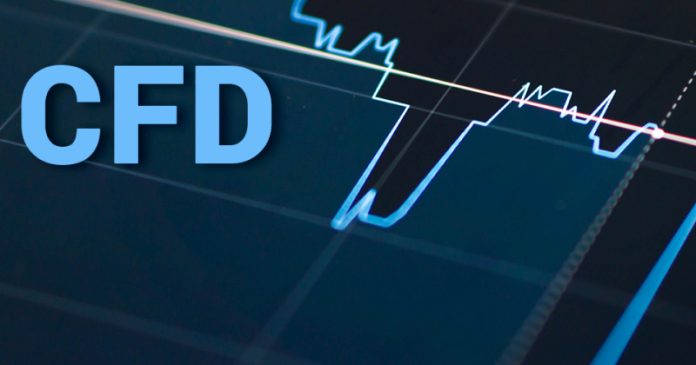Contracts for Differences (CFD)
The contracts for differences (CFD) is a contract between a buyer and a seller in which the buyer agrees to pay the seller the difference between the current value of an asset and its value at the time of the contract. CFDs enable traders and investors to profit from price movements without having to own the underlying assets. Trading experts at ChargeBackway denote that the value of a CFD contract is determined solely by the price difference between the trade entry and exit.
This is accomplished through a contract between the client and the broker, and no stock, forex, commodity, or futures exchange is used. Trading CFDs provides several significant benefits that have increased the instruments’ enormous popularity over the last decade.
How CFDs Work
A contract for differences (CFD) is a contract between an investor and a CFD broker to exchange the difference in the value of a financial product (securities or derivatives) between the times the contract opens and closes.
It is a sophisticated trading strategy that is only used by experienced traders. CFDs do not involve the delivery of physical goods or securities. A CFD investor never actually owns the underlying asset, but rather receives revenue based on the asset’s price change. Instead of purchasing or selling physical gold, a trader can simply speculate on whether the price of gold will rise or fall.
Essentially, CFDs allow investors to wager on whether the price of the underlying asset or security will rise or fall. Traders can place bets on either up or down movement. If the trader who purchased a CFD notices that the asset’s price rises, they will offer their holding for sale. The net difference between the purchase and sale prices is added together. The investor’s brokerage account settles the net difference representing the gain from the trades.
If the trader believes that the asset’s value will fall, and opening sell position can be opened. To close the position, the trader must buy an offsetting trade. The net difference of the loss is then settled in cash through their account.
Countries Where You Can Trade CFDs
CFD contracts are not permitted in the United States. Many major trading countries according to trading experts at ChargeBackway, include the United Kingdom, Germany, Switzerland, Singapore, Spain, France, South Africa, Canada, New Zealand, Hong Kong, Sweden, Norway, Italy, Thailand, Belgium, Denmark, and the Netherlands, allow them in listed, over-the-counter (OTC) markets.
The Australian Securities and Investment Commission (ASIC) has announced some changes in the issue and distribution of CFDs to retail clients in Australia, where CFD contracts are currently permitted. ASIC’s goal is to strengthen consumer protections by limiting retail clients’ access to CFD leverage and targeting CFD product features and sales practices that amplify retail clients’ CFD losses.
The product intervention order issued by ASIC went into effect on March 29, 2021. The Securities and Exchange Commission (SEC) has restricted CFD trading in the United States, but non-residents can use them.
Why Are CFDs Illegal in The U.S.?
CFDs are illegal in the United States in part because they are over-the-counter (OTC) products, which means they do not pass through regulated exchanges. Leverage also increases the possibility of larger losses, which regulators are concerned about.
The Securities and Exchange Commission (SEC) and the Commodity Futures Trading Commission (CFTC) both prohibit residents and citizens of the United States from opening CFD accounts on domestic or foreign platforms.
Is Trading CFDs Safe?
Trading CFDs is risky, and the potential benefits can sometimes outweigh the counterparty risk, market risk, client money risk, and liquidity risk. CFD trading is also risky due to other factors such as poor industry regulation, potential lack of liquidity, and the requirement to maintain an adequate margin due to leveraged losses.
Can You Make Money With CFDs?
Yes, it is possible to profit from trading CFDs. Trading CFDs, on the other hand, is a risky strategy in comparison to other forms of trading. The majority of successful CFD traders have a wealth of experience and tactical acumen.
The Bottom Line
Trading experts at ChargeBackway note that CFD trading has several advantages, including lower margin requirements, easy access to global markets, no shorting or day trading rules, and low or no fees. High leverage, on the other hand, magnifies losses, and having to pay a spread to enter and exit positions can be costly when large price movements do not occur. Indeed, in order to protect retail investors, the European Securities and Markets Authority (ESMA) has imposed restrictions on CFDs.
Read More – 5 Mesothelioma Lawsuit Questions You should ask your Attorney







